I've been trying to burn a program into ATtiny2313A-PU with my Arduino Uno R3 used as a programmer.
First I tried to program it from Arduino IDE 1.0.1 (Windows 7) and it seemed to upload the sketch, but the blink program didn't work. Then I found Michael Holachek's tutorial and followed his instructions:
- uploaded the ArduinoISP sketch to my Arduino Uno
- wired the circuit on a breadboard
- installed WinAVR on my Windows 7.
- downloaded Michael's template files (Makefile and main.c) and edited Makefile to match my settings (external 8 MHz crystal). I used this online fuse calculator to get correct fuse parameters.
- then, in cmd.exe, changed directory to the directory where I saved Makefile and main.c and ran 'make flash'
Makefile
DEVICE = attiny2313a
CLOCK = 8000000
PROGRAMMER = -c arduino -P COM5 -b 19200
OBJECTS = main.o
FUSES = -U lfuse:w:0x5e:m -U hfuse:w:0xdd:m -U efuse:w:0xff:m
######################################################################
######################################################################
# Tune the lines below only if you know what you are doing:
AVRDUDE = avrdude $(PROGRAMMER) -p $(DEVICE)
COMPILE = avr-gcc -Wall -Os -DF_CPU=$(CLOCK) -mmcu=$(DEVICE)
# Symbolic targets:
all: main.hex
.c.o:
$(COMPILE) -c $< -o $@
.S.o:
$(COMPILE) -x assembler-with-cpp -c $< -o $@
# "-x assembler-with-cpp" should not be necessary since this is the default
# file type for the .S (with capital S) extension. However, upper case
# characters are not always preserved on Windows. To ensure WinAVR
# compatibility define the file type manually.
.c.s:
$(COMPILE) -S $< -o $@
flash: all
$(AVRDUDE) -U flash:w:main.hex:i
fuse:
$(AVRDUDE) $(FUSES)
install: flash fuse
# If you use a bootloader, change the command below appropriately:
load: all
bootloadHID main.hex
clean:
rm -f main.hex main.elf $(OBJECTS)
# File targets:
main.elf: $(OBJECTS)
$(COMPILE) -o main.elf $(OBJECTS)
main.hex: main.elf
rm -f main.hex
avr-objcopy -j .text -j .data -O ihex main.elf main.hex
# If you have an EEPROM section, you must also create a hex file for the
# EEPROM and add it to the "flash" target.
# Targets for code debugging and analysis:
disasm: main.elf
avr-objdump -d main.elf
cpp:
$(COMPILE) -E main.c
File main.c

Below is the output I got:
C:\Users> cd /D D:\electronics
D:\electronics> cd nikon/mi
D:\electronics\nikon\mi> make flash
avr-gcc -Wall -Os -DF_CPU=8000000 -mmcu=attiny2313a -c main.c -o main.o
main.c:6: error: stray '\342' in program
main.c:6: error: stray '\200' in program
main.c:6: error: stray '\250' in program
main.c: In function 'main':
main.c:9: error: stray '\342' in program
main.c:9: error: stray '\200' in program
main.c:9: error: stray '\250' in program
make: *** [main.o] Error 1
I suspect that I might brick the fuses on ATtiny2313a. If that is the case, I think I will have to build this AVR rescue shield. Maybe the Makefile was configured incorrectly? How can I identify the problem? How can I check whether the chip is still alive?